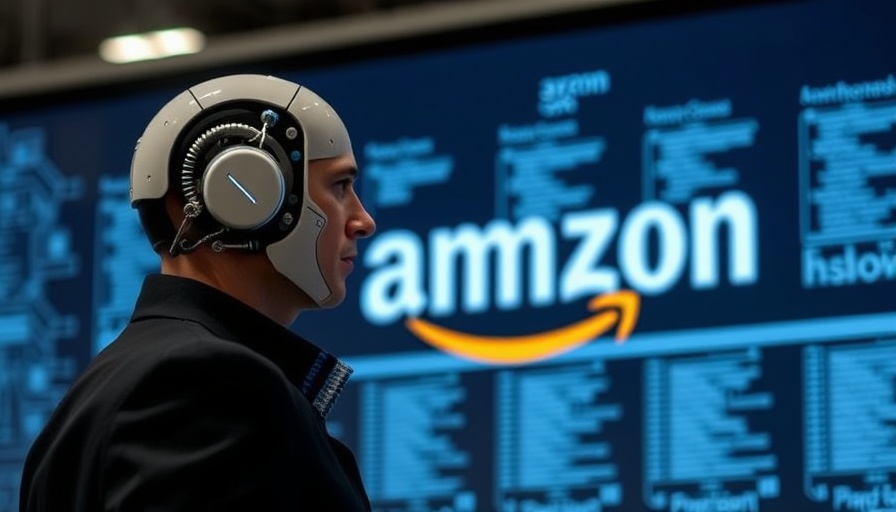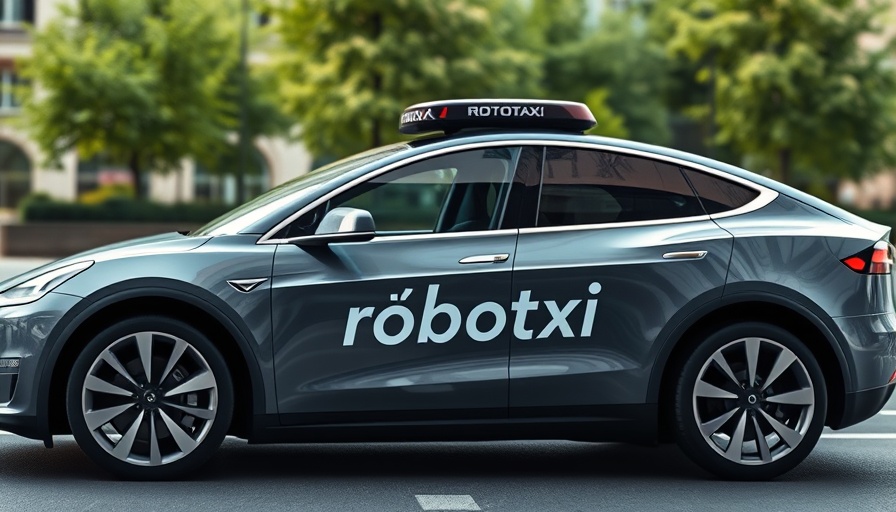
Amazon's AI Shift: A Look into Job Transformations
In a significant memo, Amazon's CEO Andrew Jassy has stirred both curiosity and concern among employees by revealing how artificial intelligence (AI) could reshape the company's workforce. With the advent of AI tools capable of performing tasks autonomously, Jassy cautioned that fewer people may be required for some roles. As he stated, “As we roll out more generative AI and agents, it should change the way our work is done.”
Understanding AI's Growing Role in the Workforce
AI isn't just a buzzword anymore; it's rapidly integrating into everyday work life. Its potential impact extends beyond Amazon, as the Organisation for Economic Co-operation and Development warns that skilled professions—like law and finance—could be at risk. Furthermore, the International Monetary Fund reveals that 60% of jobs in developed countries are similarly vulnerable to AI advancements.
The Dual Nature of AI: Threat or Opportunity?
Jassy isn't the only leader examining AI's implications. Dario Amodei from AI company Anthropic also commented on AI's potential to replace many entry-level positions. However, this narrative isn't solely about job loss. The Tony Blair Institute posits that while around 3 million private sector jobs in the UK may disappear, new opportunities will emerge, potentially balancing out the job market. This dual perspective emphasizes the importance of adaptability in the workforce.
Preparing for the AI Future: Steps Employees Can Take
To thrive in this evolving landscape, Jassy urged Amazon employees to embrace the change by educating themselves about AI. By becoming conversant in AI technologies, employees can position themselves for new roles that focus on collaboration with these intelligent systems. Organizations also encourage training initiatives, equipping workers with essential skills for future opportunities.
The Human-Technology Dilemma
The rapid integration of AI raises critical questions about societal impact. While technology can streamline operations and enhance productivity, it’s vital to consider ethical implications and how these shifts will affect workers. Engaging with AI doesn't merely mean understanding its mechanics; it also involves grappling with how AI affects our jobs and society at large. This is a pivotal time for employees and leaders alike to engage in dialogue about the future of work in an AI-dominated landscape.
As we navigate through these uncertainties, it is essential for individuals to take proactive measures to be prepared for the impending changes. Consider exploring AI learning resources, diving into beginner's guides, or even participating in relevant AI education initiatives to better understand how this technology can shape your career moving forward.
 Add Row
Add Row  Add
Add 




 Add Row
Add Row  Add
Add 



Write A Comment